|
How many of these food words do you know? Can you spell them right? Test yourself first then check your answers below. No cheating!
0 Comments
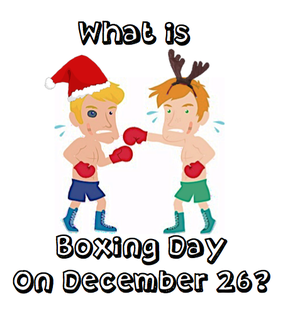 What do you think of when you see or hear the word "boxing"? Probably two people boxing each other? The holiday known as Boxing Day on December 26th has nothing to do with boxing or hurting people. Actually, it's quite the opposite! This holiday known in Britain, Ireland, Canada, New Zealand, and Australia is sometimes also called St. Stephen's Day. There have been many stories about what Boxing Day means. The most common story I've heard is from the 1900s where upper class British people would give gifts or money in a small "Christmas box" to thank their servants and service men and women (cleaners, paper boy, postman). This tradition still continues for some people today where they will donate their time or buy gifts to charities and for people who are less fortunate. Some people have also said it started from the Church of England where churchgoers would put their monetary donations in a box many days before December 26th. On Boxing Day, this box would be opened and the money would be given to the poor. Either way, Boxing Day is widely known as a day to share something with people who are less wealthy or those who serve us. Most recently, however, Boxing Day has also become known as a big shopping day! This is the day that a lot of stores have big sales and offer doorbuster deals. It seems like stores just like to take every opportunity to attract some attention! The Oxford comma has been debated a lot! Should it be used all the time? Can I just not use it at all? It doesn't do anything for my writing! First let's understand what the Oxford comma is. Take a look at this sentence: "My dog is lazy, chubby, and old. Did you notice the commas? We use commas when we're listing more than two things. There is a comma after the word "lazy" and before the "and" to show the separation of the three items. The Oxford comma, also known as the serial comma or the Harvard comma, is the comma you see before the "and" and "or". This comma makes it easier for people to separate the items you are listing and it also avoids ambiguity. In a sentence with a simple list like the example above, the meaning is clear and most people will immediately know what you mean. But there are some cases where it can get confusing. Take a look at this example: Notice there is no comma before the "and." This creates the confusion that your parents are Bill Clinton and Lady Gaga....which would be pretty cool and strange. If we add the Oxford comma before the "and," the sentence becomes clear that you mean you want to thank (1) your parents (2) Bill Clinton (3) Lady Gaga. It won't mean that your parents=Lady Gaga and Bill Clinton. Here is another example of how the Oxford comma can help eliminate confusion. "Every morning I have a cup of coffee, sausage and eggs and toast." This is very confusing. Does it mean you have: (1) coffee (2) sausage (3) eggs and toast (1)Coffee (2) sausage and eggs (3) toast If we introduce the Oxford comma, the meaning becomes clear: "Every morning I have a cup of coffee, sausage and eggs, and toast" Every morning you have: (1) a cup of coffee (2) sausage and eggs (3) toast This is a recent news story that shows how using the Oxford comma can be very important! The Oxford comma is commonly hated because sometimes it can make a sentence more confusing. For example: "Last night I met Trish, a baker, and Margaret " Did you meet three people or is Trish a baker? In cases like this I would suggest rewording a sentence instead of listing so it's clearer. The Oxford comma may not work perfectly every single time, but in most cases it can reduce a lot of confusion (you don't want people thinking your parents are Bill Clinton and Lady Gaga unless they are your parents!). I tend to use it more than I don't just because it has certainly added more clarity to my sentences. The important thing is to understand the difference in meaning when you use it and when you don't. As with anything in the English language always reread your work and when you read something you don't understand sometimes common sense can help!
As most of you probably know, I live in Seattle, the city that makes most people think of rain rain rain! I actually don't think it rains as much as people think, but Seattle can get quite overcast. The great thing is we appreciate the sun a lot more! Since it's now winter and I'm missing some warmer weather, I thought a lesson on describing some different types of weather would bring some summer and spring weather into my life :-)
Can you share what the weather is like in the city you live in? |
ARCHIVE
January 2017
CATEGORIES
All
 This work is licensed under a Creative Commons Attribution-NonCommercial-NoDerivatives 4.0 International License. |
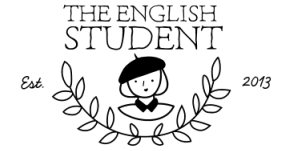
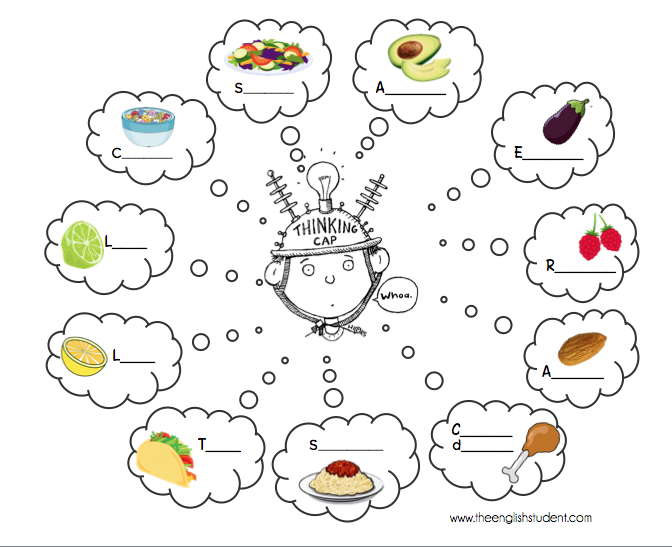
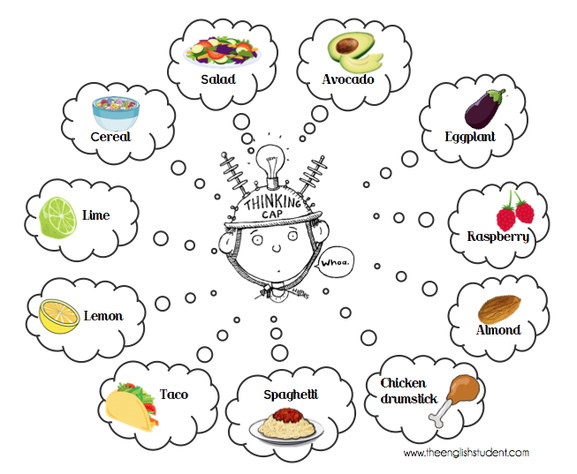




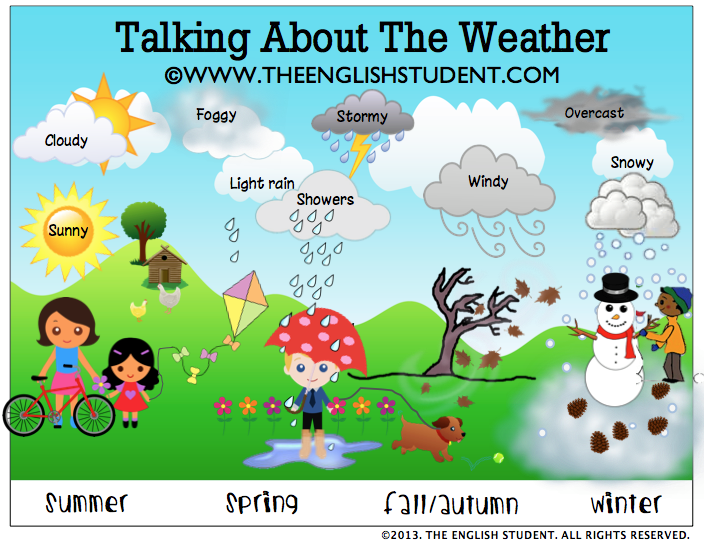

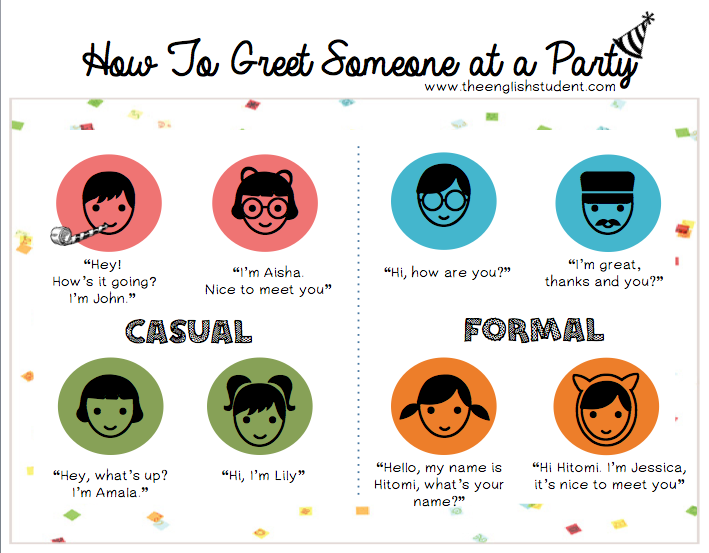
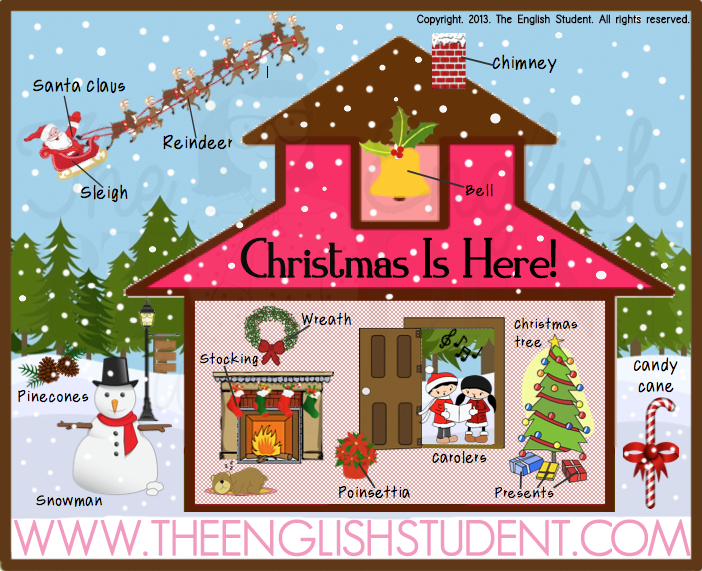





 RSS Feed
RSS Feed
